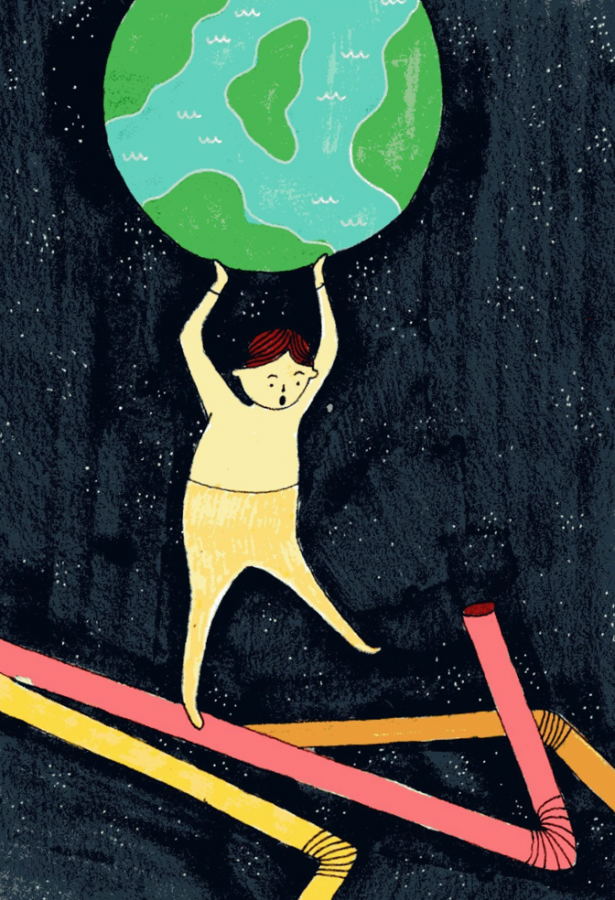Plastic straw bans need to bend
September 27, 2018
With the rise of plastic pollution in the Earth’s atmosphere and water sources, environmentalists are taking steps to ban plastic straws within major cities in the United States. While banning plastic straws may be seen as a miniscule step towards environmental sustainability, the significance of individual impacts is one that is stressed in the field of environmental science. A social science term, the tragedy of the commons, refers to a situation where individual consumers take more than the necessary amount of resources resulting in an imbalance in that ecosystem. In this case, plastic is that resource. This advance, while beneficial in many ways, does not consider its impact on populations of people with medical illnesses who rely on flexible straws. This issue is detrimental to the ban as a whole for the way that it alienates and disregards the needs of people for the sake of enforcing a policy that could be acted upon if populations were more thoroughly educated on the matter.
Though plastic is manufactured and not seen as a natural resource, it is made up of components that are non-renewable resources, making it too valuable to waste.
As further developments are made in cutting plastic straws out of major corporations, more straw alternatives, such as metal straws, silicone straws, bamboo straws, and glass straws are being more widely offered, making for a smoother transition into banning single-use, plastic straws altogether.
However, the urgency to reduce our plastic consumption does not dismiss the major flaw in the proposition of the ban. Despite the good that we can do for our planet by cutting out plastic straws, making such a drastic change can have damaging impacts on people with medical handicaps. The plastic straw ban turns a blind eye to certain disabilities that require the use of a flexible straw, creating a huge controversy for the way that it is violating the lives of people who need access to straws.
DVHS junior, Alina Amilee gives insight on how the ban could potentially cause harm for her brother and her family,
“I have younger brother with Cerebral Palsy, a physical disability where his nerves and muscles don’t exactly work the same way yours and mine do. He can’t do simple things that we could probably do in our sleep like tying his own shoes, brushing his teeth, and most importantly, drinking out of a cup.”
Amilee expands on her brother’s need for plastic straws as opposed to any alternatives, “The biggest issue is that metal straws are not bendable at all and that is the way that my brother needs to use them. Another reason is that with his disability, he cannot control how hard he would bite down on the metal straws because of the issues with his nerves and muscle control which would cause damage to his teeth.”
Ultimately, the dispute as to whether or not the plastic straw ban should be put into place is dubious for the reason that all lives must be taken into consideration. It would be wrong to advance with this ban and disregard the human lives that could be harmed by it, but that shouldn’t permit the radical use of plastic.
As I mentioned before, the plastic issue that exists is not one that should be ignored-it is imperative that we change our consumption habits for the sake of keeping the Earth clean in order to sustain more generations of people throughout the course of time. Individual consciousness is the most convenient method to reducing plastic waste and pollution considering that the decision lies in the hands of the individual. However, imposing a strict regulation, especially one that neglects the needs of certain populations can be harmful, while educating the public inflicts no harm.
While it is important that we cut down on our plastic consumption, it shouldn’t be at the cost of others’ safety and comfort. Citizens should not have to compromise their vital necessities in any case and the plastic straw ban is no exception to that. However, this does not mean that we cannot limit our plastic consumption as individuals. It is always a good idea to think consciously about making the most compassionate decisions when it comes to the way that we treat our planet.


